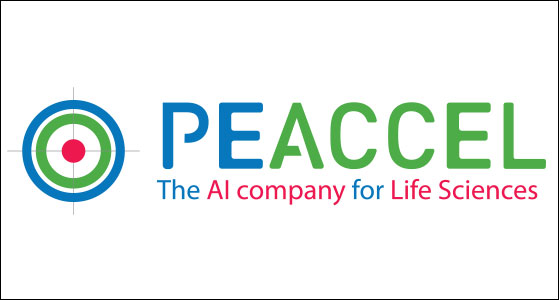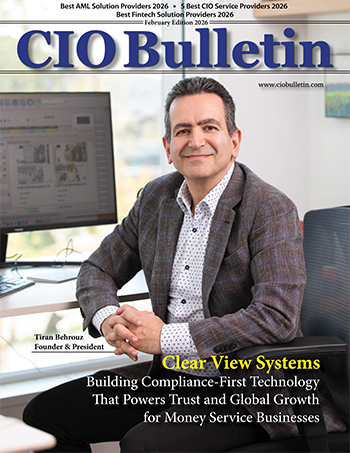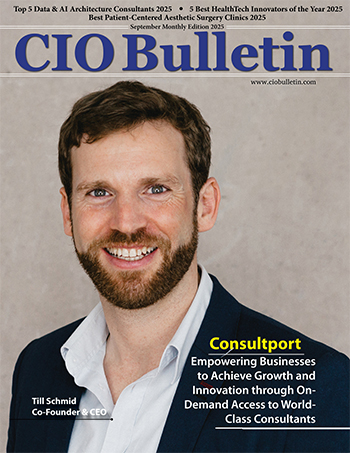50 Best Companies to Watch 2022
CIO Bulletin

The brigade of scientific breakthroughs and new technologies is relentless and keeps throwing challenges. Analyzing the astronomical amounts of data generated through R&D can potentially re-conceptualize how we perceive life sciences. Artificial Intelligence (AI) has stepped in to navigate us through this enormous ocean of data.
How? When used by the pharmaceutical industry, artificial intelligence can draw insights from massive data sets faster, process data and automate workflows more efficiently, and convert insights into actions to improve business performance.
Artificial Intelligence (AI) has a massive role in life sciences. With such unimaginable amounts of data generated daily through Research and Development (R&D), AI can help analyze and draw relevant information from it much more quickly than if humans were to do so.
More is better regarding Big Data and machine learning (ML). This is particularly true in the fields of medicine and pharma. A report by Accenture estimates that by the year 2026, Big Data, in conjunction with ML in medicine and pharma, will be generating value at a prodigious rate of $150 billion/year.
This figure reflects how AI tools are expected to help doctors, patients, insurers, and overseers reach better decisions, optimize innovations, and improve research and clinical trial efficiency.
PEACCEL is one of the best AI firms within the life sciences and healthcare industries. What makes PEACCEL different is that it can either execute a data-centric approach or produce massive amounts of synthetic data to train its Machine Learning (ML)/Deep Learning (DL) platform. Other firms have taken the shortcut of relying on datasets that are often messy and of low quality.
Tomorrow all drugs will be AI-based. PEACCEL’s innov’SAR industrial AI platform for drug discovery can fully predict synergistic effects of mutations within a protein sequence, termed as “epistasis”. Epistatic effects dramatically influence the success of AI Drug discovery projects. Epistasis leads to the Best drug lead candidate where other AI approaches lead to a good drug candidate alone.
Innov’SAR can screen 1 Billion protein mutants per day. PEACCEL is the only firm capable of fully capturing epistasis and predicting outside-the-box, and is ahead of the competition, especially in terms of “hit rate.”
The history of PEACCEL and its goal— to make the world disease free
PEACCEL de-risks and accelerates Protein Engineering for biotech, pharma, chemical, and life sciences companies. Make the world disease free is PEACCEL’s mission: They find the Real drug lead candidate by capturing the synergistic effect of mutations (epistasis). PEACCEL has developed the innov’SAR AI platform for its partners. Bridging Artificial Intelligence and Life Sciences to open new horizons. The firm delivers excellence in Protein Engineering and Drug Discovery for a better future.
Designing proteins as enzymes, drugs, and diagnostics are expensive, lengthy, and associated with high risks, and success is not guaranteed.
However, PEACCEL’s solution of cost-efficient protein/enzyme and therapeutic antibody development with AI has the following benefits:
In August 2016, PEACCEL received €1m seed money and opened its Paris office, France. PEACCEL’s office is in Tour Montparnasse, the highest Tower in Paris.
In 2017, PEACCEL’s innov’SAR core was launched, and EPO delivered its first technology patent. The firm established its presence in Boston, MA, the USA, along with a contract with the US FDA. PEACCEL acquired a supercomputer with a screening capacity of> 1 billion mutants/day.
In 2018, the firm secured €2m in competitive EU funds and launched AutomISAR. The firm secured its first contracts with crucial pharmaceutical companies in the same year.
In 2019, PEACCEL secured its second technology patent from the EPO and additional contracts with key players in the chemical industry. The firm launched GraphMut and innov’SAR platform assembled for Protein Engineering for Drugs - Fixed Drugs Combinations (FDCs).
In 2021, PEACCEL secured the patent on proprietary molecules and was awarded the winner in Artificial Intelligence for Life Sciences.
In 2022, PEACCEL and SYNTHELIS signed a strategic partnership to offer their clients and partners a one-stop shop combining Artificial Intelligence (AI) and Cell-Free lead expression for accelerated drug discovery.
PEACCEL provides a data-centric approach to AI-based drug discovery for all possible protein mutations and selecting lead drug candidates from billions of molecules. Then, SYNTHELIS ensures, in a high throughput manner, the cell-free production of the mutants and the characterization of interactions or activities. SYNTHELIS’ cell-free technology ensures the possibility of expressing the most significant number of mutants to avoid missing out on suitable candidates.
Influencing the global life sciences industry through AI-based research and development
PEACCEL, the AI for Life Sciences, accelerates research and development in the medical field for a better future for humankind.
Tomorrow all drugs will be AI-based
The three challenges are:
PEACCEL has the technology that will not miss the right drug candidates. PEACCEL is the only company capable of fully capturing interactions inside the protein sequence (epistasis). Epistatic effects dramatically influence the success of AI Drug discovery projects. The real Lead Drug Candidate cannot be missed when epistasis is predicted.
PEACCEL’s patented technology is unique and offers customers and partners the following advantages over the competition:
PEACCEL focus its AI activities on the Life Sciences sector. PEACCEL’s Protein engineering AI-based solutions and target markets include:
PEACCEL establishes strategic partnerships with key players in the chemical industry, with biotech and pharma companies in addition to start-ups with complementary advantages or cutting-edge innovation.

Insurance and capital markets







